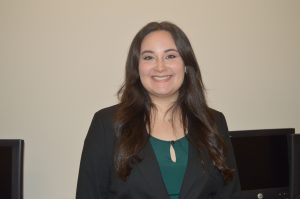
Written By: Alexis Gilman
A copyright case that is said to be a “landmark copyright battle” was recently heard before a New York federal judge. This case stems from the Internet Archive’s Open Library program and National Emergency Library. The Open Library is a program in which the organization lends digitally scanned books to people without the publisher’s permission or compensation for the publishers or authors. Furthermore, the San-Francisco based nonprofit digital library launched the National Emergency Library during COVID-19 after the closing of libraries due to the pandemic. This program removed the “own-to-loan” restriction and allowed unlimited numbers of people access to the digitally scanned books.
The lawsuit, Hatchette v. Internet Archive, began in 2020 when a group of major book publishers, which includes Hachette Book Group Inc, John Wiley & Sons Inc, and Penguin Random House LLC decided to sue the Internet Archive over the free lending of scanned copies of their printed books through the Open Library program and the National Emergency Library. The Internet Archive argued its digital lending of the copies is similar to that of a traditional library, while the publishers argued that the practice is mass copyright infringement, hurts the ebook market for authors, and that the Internet Archive is not running a real library. It is now up to the court to consider whether the Open Library program violated copyright law.
This case brings into question U.S. fair use law, which allow people to use copyrighted material without permission. The Fair Use Doctrine only allows this in certain circumstances depending on the type of use. Criticism, comment, news reporting, teaching, scholarship, and research are all examples of activities that may qualify as fair use. The Fair Use Doctrine looks at four factors in evaluating whether something qualifies as fair use, which includes (1) purpose and character of the use, including whether the use is of commercial nature or is for nonprofit educational purposes, (2) nature of the copyrighted work, (3) amount and substantiality of the portion used in relation to the copyrighted work as a whole, and (4) effect of the use upon the potential market for value of the copyrighted work. Court may consider other factors depending on the circumstances, as courts evaluate fair use claims on a case-by-case basis. The Fair Use Doctrine could potentially be used to justify lending scanned books without the publisher’s permission depending on how the court chooses to view the act in light of rulings in past fair use cases.
This case also brings up questions relating to whether the concept of “Controlled Digital Lending” (CDL) falls under the same copyright law as a print book. CDL is a system where libraries digitize copies of books and then offers access to them as ebooks that are not typically licensed out by publishers. The Internet Archive’s digital library is considered CDL. This concept in relation to U.S. copyright laws has not yet been tested in court.
This decision could significantly affect how libraries are able to scan their own book collections. The outcome will determine whether libraries are able to scan and lend copies of their own books or if they will instead need to rely on temporary digital licenses offered by publishers. Major publishers currently offer no option for libraries to permanently purchase digital books. In addition, if the Internet Archive loses the case, they could potentially owe billions of dollars in damages, which could affect the functionality of the rest of the nonprofit organization. Whichever way the case comes out, there will be a significant impact on the future preservation of books and the freedom of libraries to share knowledge.
Sources:
Adi Robertson, The Internet Archive is Defending Its Digital Library in Court Today, (March 20, 2023).
Blake Brittain, Internet Archive Faces Skeptical Judge in Publishers’ Copyright Lawsuit, (March 20, 2023).
U.S. Copyright Office Fair Use Index
